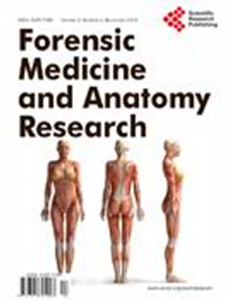FMAR – Forensic Medicine and Anatomy Research
FRANCESCO CARINCI1,2*, ROSA MARIA GAUDIO3
1Department of Morphology, Surgery and Experimental Medicine, University of Ferrara, Ferrara, Italy; *Corresponding Author: crc@unife.it
2Department of Law, University of San Marino, Montegiardino, Republic of San Marino;
3Department of Medical Sciences, University of Ferrara, Ferrara, Italy.
Abstract
Peri-implantitis has been defined as an inflame- matory condition involving dental implants, surrounding mucosa and bone, which lose supporting bone. Although high success rates for endosseous implants have been reported, failures occur, and some implants are lost or removed. At least 10% of the failures have been suggested to be the result of peri-implantitis. One of the major causes of the peri-implantitis is the bacterial colonization of implant surfaces but additional risk factors such as periodontitis, poor oral hygiene, tobacco consumption, prepost operative therapies and genetic susceptibility should be considered. In the present study a real-time PCR bases assay was designed to detect and quantify red complex species, then used to investigate 307 periodontal pocket samples from 127 periodontitis patients and 180 controls. Results demonstrated a significant higher prevalence of red complex species and increased amount of Porphyromonas gingivalis and Treponema denticola in periodontal pocket of periodontitis. Since a higher risk of peri-implantitis occurs in periodontally affected patients, detection and treatment of bacteria is a fundamental objective to ensure dental implant survival.

